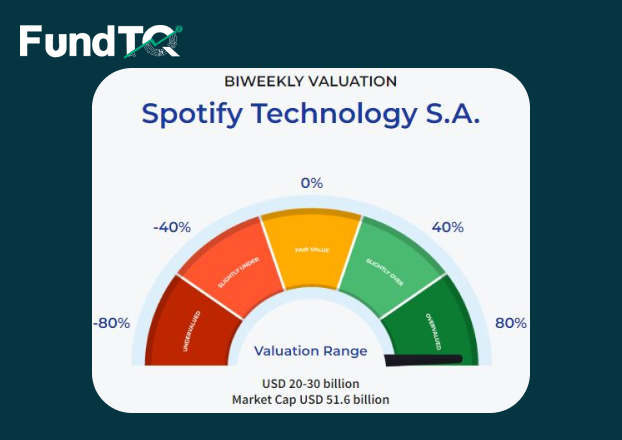Hey there! Ever wondered about the secret code to figuring out how much your business is worth? Well, you’re in the right place. Welcome to our easy-to-understand guide, “Navigating Business Valuation: 10 Crucial Insights for Smart Decisions.” Whether you’re thinking of selling your business, buying out a partner, or just curious about its value, we’ve got your back.
Think of this blog as your friendly map through the business valuation jungle. We’ll talk about costs, different reasons you might need a valuation, and how experts figure out the price tag using approaches like the Income, Market, and Asset methods. We’ll also chat about important standards and how to pick the right expert.
So, if you’ve ever felt lost in the world of business numbers, join us as we break it down into plain language. Let’s unlock the mysteries of business valuation and make your business journey a whole lot clearer!
10 Thing You Need To Know About Business Valuation
Lets see the top 10 important things about business valuation that every business owner should know:
1. What is Business Valuation?
Business valuation is like figuring out how much your business is worth. Experts, called appraisers, look at things like how much money the business makes, what it owns, and what it owes. They use this info to estimate its value. People do this for different reasons, like planning for the future, sorting out taxes, or selling the business.
There are a few ways to do it. One way is by looking at how much money the business could make (Income Approach). Another way is by checking what similar businesses are worth (Market Approach). And there’s also a way to look at what the business owns and owes (Asset Approach).
The result is a report that tells you how much your business might be worth. This helps when making big decisions about the business. Whether you’re selling it, planning for the future, or dealing with legal stuff, knowing the value is key.
2. What is Cost Consideration of Business Valuation?
Typically, business valuation costs fall within the range of $6,000 to $20,000, influenced by the project’s complexity. Before starting, a thorough discussion outlines the project’s scope, determining the project fee. However, discovering your business’s value is now more accessible, with valuations available for as little as none. Thanks to advanced valuation software, you can obtain a quick and affordable assessment within just 10 minutes, streamlining the process and making it cost-effective. This alternative ensures that even businesses with budget constraints can access essential valuation insights promptly.
3. Needs Of Business Valuation
Understanding the needs of business valuation is essential for informed decision-making. Whether planning a sale, estate, or tax strategies, valuations are crucial. They aid in transactions, tax reporting, financial reporting, and litigation. Accurate valuation ensures fair market value, vital for strategic planning, risk assessment, and financial performance comparisons. Comprehensive business appraisals by accredited professionals adhere to standards like USPAP, reinforcing credibility. Business owners benefit from valuable insights, enhancing operational efficiency and long-term planning.
4. What are Business Valuation Approaches?
Business valuation approaches are methodologies to assess a company’s worth. Three main approaches include the Income Approach, evaluating expected earnings against associated risks; the Market Approach, comparing the business to similar ones in the market; and the Asset Approach, determining the value of a company’s net assets. These approaches guide experts in determining the fair market value of a business, crucial for strategic decision-making, mergers, acquisitions, and legal matters. Accredited professionals follow these approaches using recognized standards like USPAP, ensuring accurate and credible business valuations that empower informed decision-making.
5. Significance of Valuation Date
The significance of the valuation date lies in capturing a precise snapshot of a business’s value at a specific point in time. As with any equity investment, a company’s worth evolves over time due to internal and external factors. An up-to-date business valuation is crucial for supporting future decisions, providing an accurate reflection of the business’s current market value. This ensures that stakeholders have the most relevant information, facilitating strategic decision-making, and addressing the dynamic nature of business value over time.
6. Multiplicity of Business Values
The multiplicity of business values acknowledges that a company can have different values at the same time. These values depend on buyer-seller dynamics and perceived synergistic benefits. A business might have a lower value to one buyer but a higher value to another who sees additional benefits. Majority ownership often holds more value than a minority position. Recognizing these varied perspectives is crucial in negotiations, mergers, and acquisitions. Understanding the multiplicity of business values enables strategic decision-making that considers diverse stakeholder perceptions, optimizing outcomes in transactions and enhancing the overall market positioning of the business.
7. Understanding USPAP and Valuation Standards
Understanding USPAP (Uniform Standards of Professional Appraisal Practice) and valuation standards is crucial for credible business appraisals. These standards, set by organizations like the Institute of Business Appraisers (IBA) and the American Society of Appraisers (ASA), ensure adherence to recognized appraisal practices. Following USPAP reinforces an appraiser’s expertise and the credibility of their work. Appraisers with designations like ASA, CBA, CVA, or ABV signal accredited expertise. Adherence to these standards is essential to uphold the integrity of valuation reports, providing stakeholders with reliable insights for strategic decision-making and legal purposes.
8. Evaluating Appraiser Qualifications
Evaluating appraiser qualifications is crucial to ensure reliable business valuations. Professionals in various fields may claim to be appraisers, but only accredited individuals possess the necessary training. Accredited business appraisers hold designations like Accredited Senior Appraiser (ASA), Certified Business Appraiser (CBA), Certified Valuation Analyst (CVA), or Accredited in Business Valuation (ABV). These designations signal expertise and adherence to recognized standards. Engaging services from an accredited entity guarantees a level of proficiency necessary for providing defensible valuation reports. By evaluating appraiser qualifications, businesses secure credible insights, essential for strategic decision-making, legal matters, and overall business transparency.
9. Documentation Requirements
Documentation requirements for business valuation involve essential records like financial statements, forecasts, and operational details. Accredited appraisers rely on comprehensive documentation, including the company’s services, products, operations, customers, suppliers, and competitors. Financial statements from the past five years, interim financial statements, and any business planning materials contribute to a credible valuation. These documents aid in understanding the business’s financial health and future potential, providing stakeholders with valuable insights for strategic decision-making. Meeting these documentation requirements ensures a thorough and accurate assessment, reinforcing the integrity of the valuation process.
10. Beyond Transactions: The Holistic Use of Valuations
Beyond transactions, valuations serve as versatile tools for holistic business understanding. Business owners leverage valuations to measure risks, compare financial performance, and identify key value drivers. These insights empower long-term planning, enhancing both operational efficiency and financial performance. Valuations go beyond a one-time assessment, aiding in strategic decision-making, risk assessment, and benchmarking against industry peers. The holistic use of valuations is instrumental in guiding businesses toward sustained growth and resilience. Recognizing valuations as ongoing tools allows businesses to adapt, strategize, and capitalize on opportunities, ensuring a dynamic approach to value optimization.
Conclusion
In conclusion, this comprehensive guide unveils the intricacies of business valuation, offering 10 crucial insights for intelligent decision-making. From understanding valuation costs, the significance of valuation dates, and the multiplicity of business values to evaluating appraiser qualifications and documentation requirements, we’ve navigated the realm of business numbers in plain language. Business owners can now grasp the holistic use of valuations beyond transactions, leveraging them as indispensable tools for strategic decision-making and long-term planning. With accessible valuation tools, affordable assessments, and expert insights, this guide ensures businesses unlock the mysteries of valuation, paving the way for a clearer and more informed business journey.
Also Read – Top Investment Banking Companies












